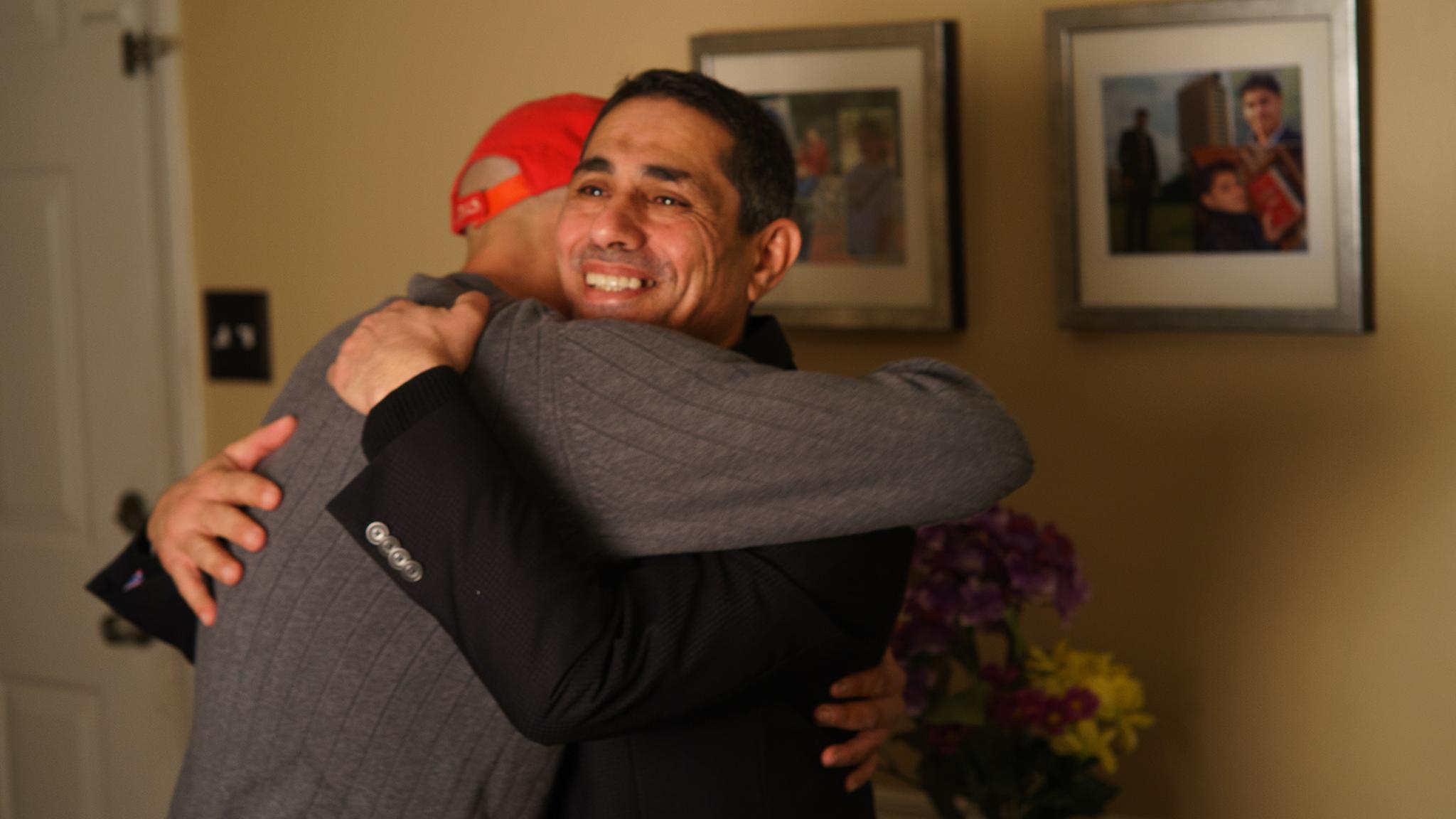Trump travel ban: Who counts as a 'bona fide' relative?
- Published
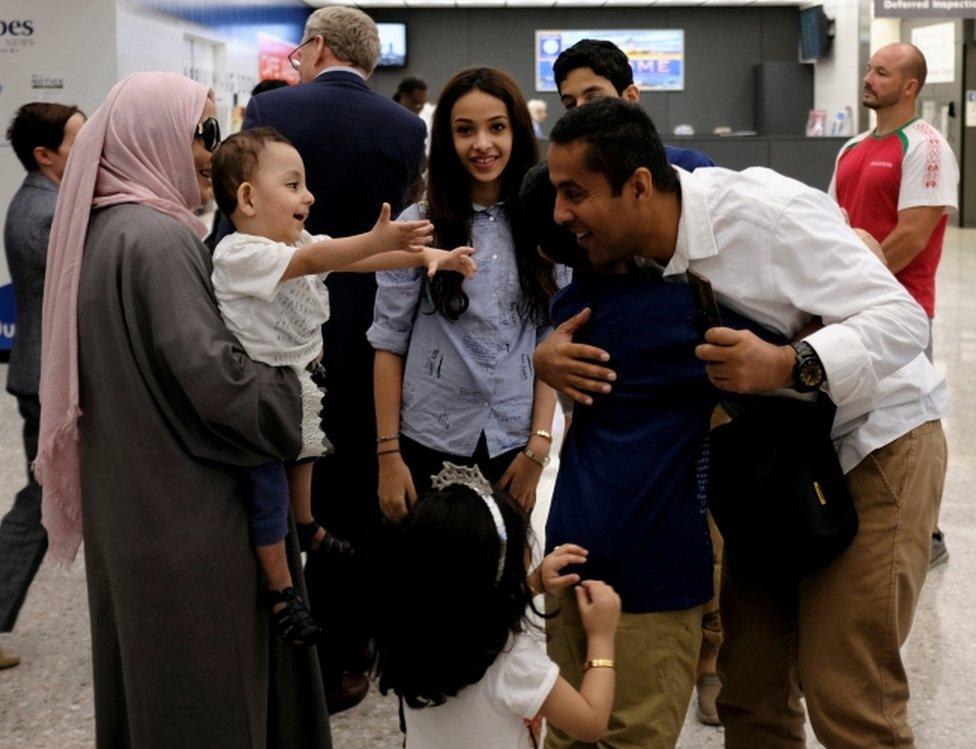
The temporary travel ban had stopped those affected from visiting relatives in the US
President Donald Trump's temporary travel ban sparked a debate about who should count as a close relative.
Under the rules, the US may refuse entry to refugees unless they can prove a "bona fide relationship" with a person, business or university in the US.
The same terms apply to people with passports from Iran, Libya, Syria, Somalia, Sudan and Yemen.
Initially, the state department said that the only people who counted as "close family" were parents (including in-laws and step-parents), spouses, fiancé(e)s, children (including sons and daughters-in-law), siblings and half-siblings.
But others didn't make the grade - among them grandparents and grandchildren, aunts, uncles, nieces, nephews, and cousins.
Weeks later, a court in Hawaii ruled that the state department's rules defied "common sense".
"Common sense, for instance, dictates that close family members be defined to include grandparents," District Judge Derrick Watson wrote.
"Indeed, grandparents are the epitome of close family members."
Grandparents, not terrorists
In June, as the travel ban came into effect, the Trump administration's definition of "close family" prompted strong emotions online.
Many social media users insisted their loved ones should be on the "bona fide" list, and posted pictures of their grandparents under the Twitter hashtag #grandparentsnotterrorists, external.
Some addressed the US president directly, asking: "Is this the face of terror?"
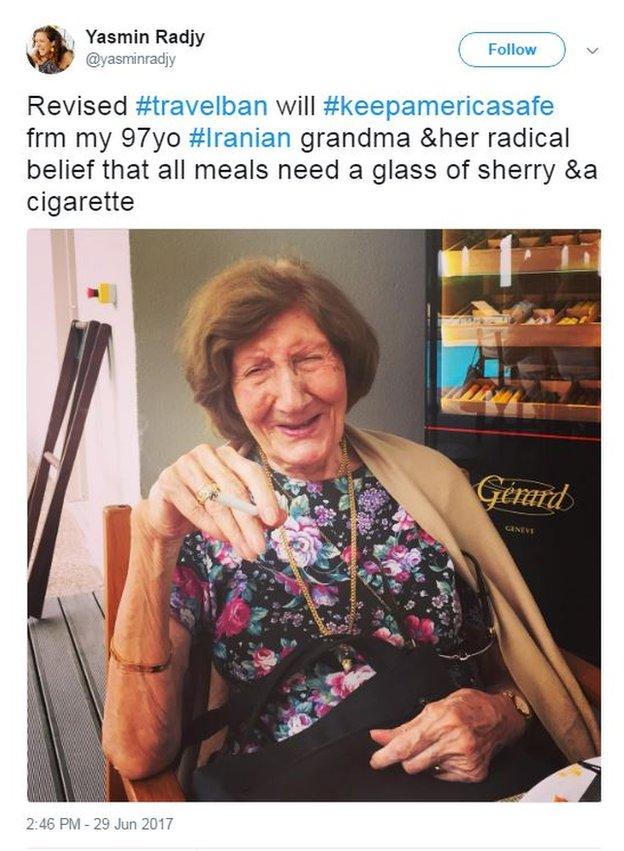
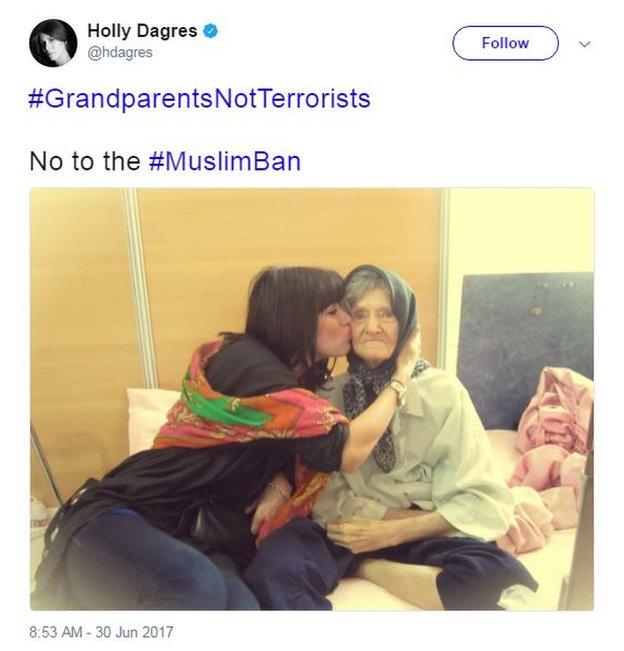
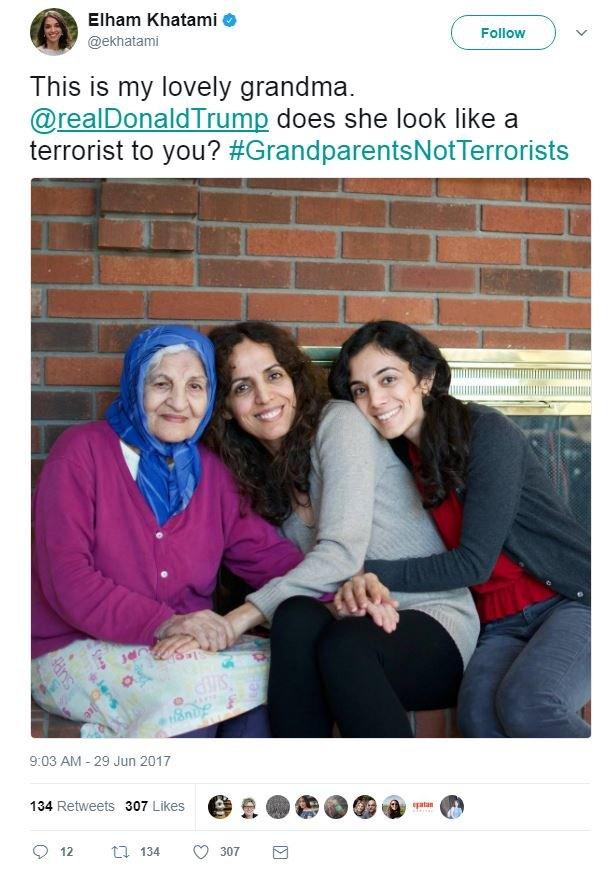
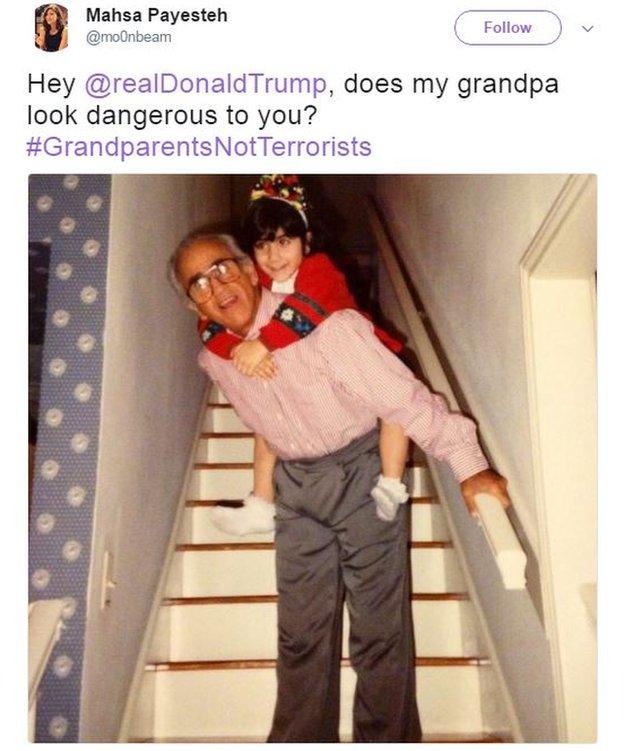
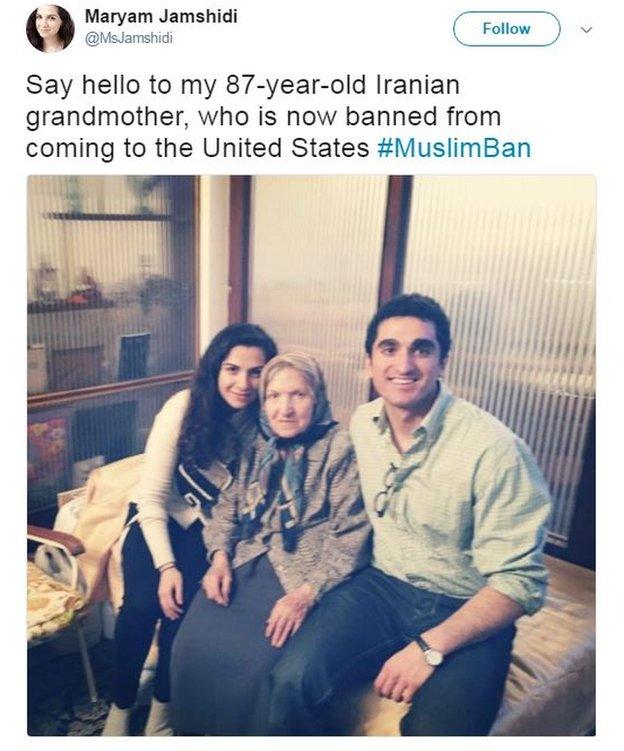
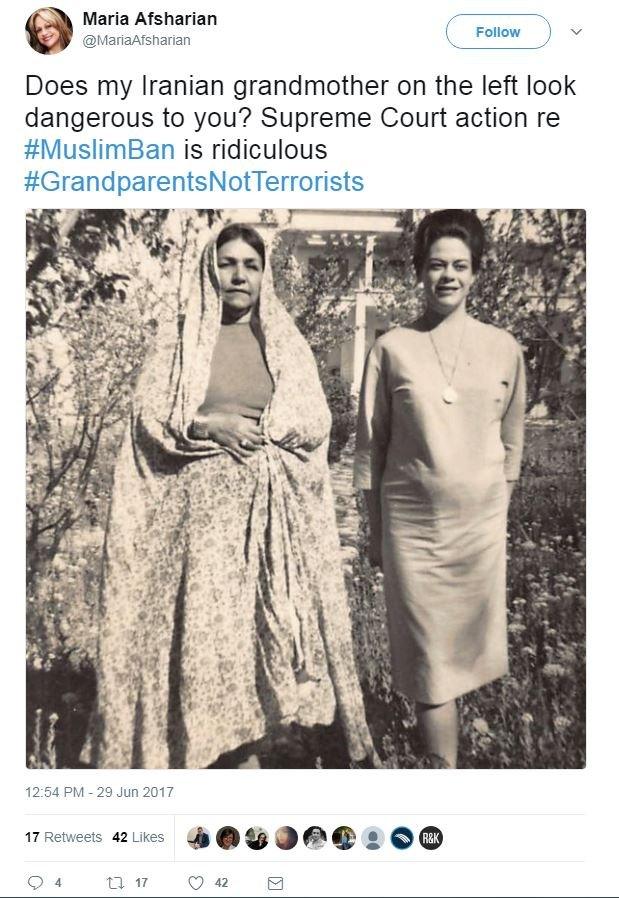
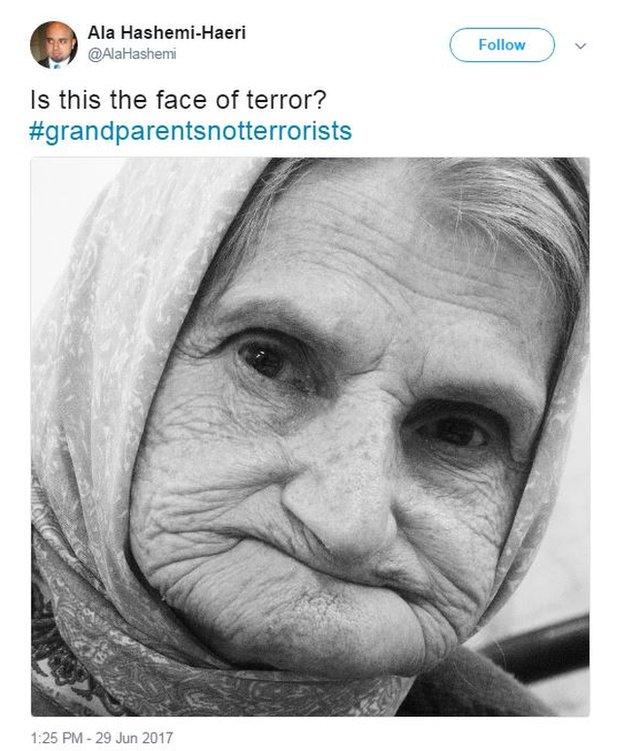
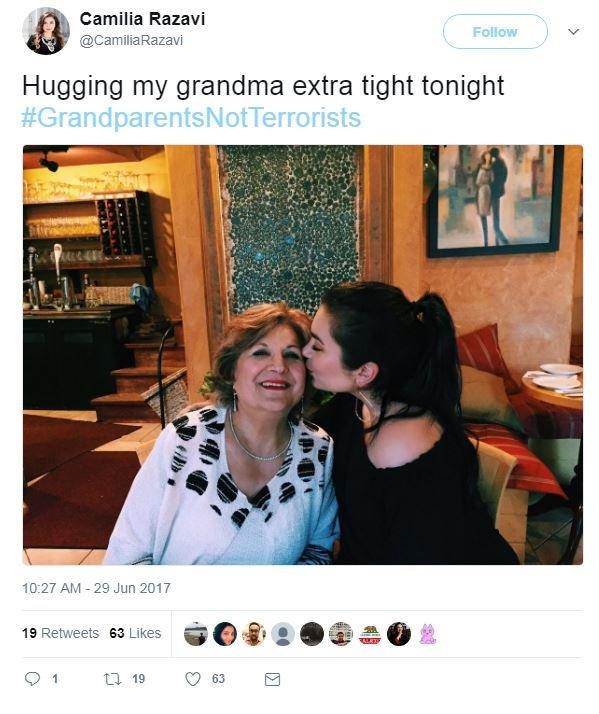
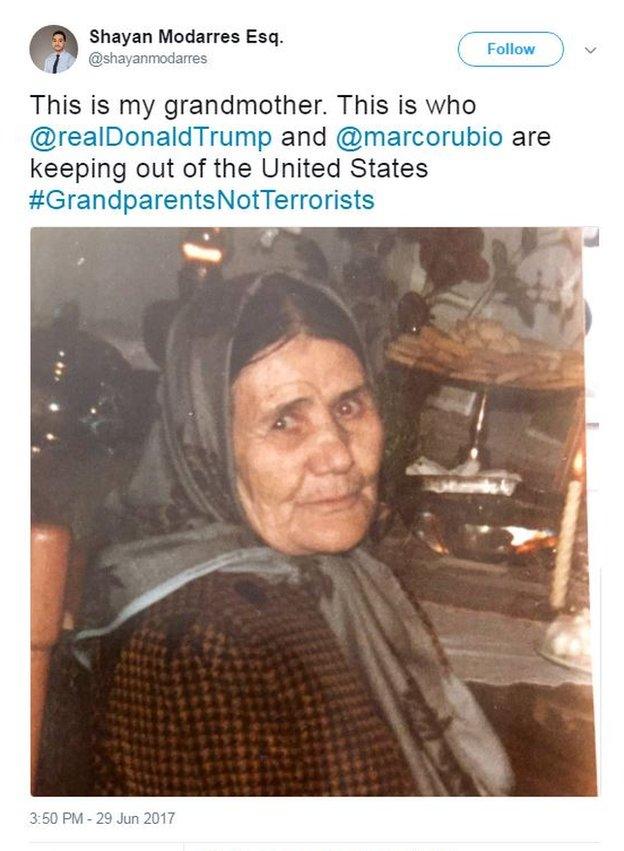
One user from Houston, Texas tweeted, external: "I have #Bonafide relationship W/my #GrandparentsNotTerrorists. Thank God my family's been in #US longer than @realDonaldTrump #POTUS family!"
Michael R Ulrich, a professor at the Center for Health Law, Ethics & Human Rights, shared a picture of a little girl, writing, external: "I know you're my niece, but no more presents for you Olivia, our relationship is not #bonafide."
Lawyers and human rights groups warned that the controversial travel ban - and its tricky terms - would prompt a "summer of litigation" as desperate refugees and would-be travellers tried to prove their claims were really "bona fide".
The Hawaii ruling may solve a problem for many family members but individuals still need to prove their connection to the US to enter for work or educational reasons.
And while the issue around "close family" may now be resolved - for now at least - many took issue with the government even attempting to define it in the first place.
Syrian-American Rama Issa, the executive director of the Arab-American Association of New York, told news website Quartz, external in June that the Trump administration was "redefining what a family is".
She had planned to marry in the autumn, and wants her beloved cousins, aunts, and uncles - who live abroad - to be there. She told the site she had postponed her wedding, after struggling with "the idea that a government can tell me who the members of my family should be".
'This time we knew what to expect' - immigration lawyer at San Francisco airport
Naureen Shah, Amnesty International USA's senior director of campaigns, said the initial guidance was "simply heartless," and showed "a cruel indifference to families, some already torn apart by war and horrifying levels of violence".
She also called it a poor way to label families, noting: "It defines close family relationships in a way that ignores the reality in many cultures, where grandparents, cousins and in-laws are often extremely close."
- Published30 June 2017
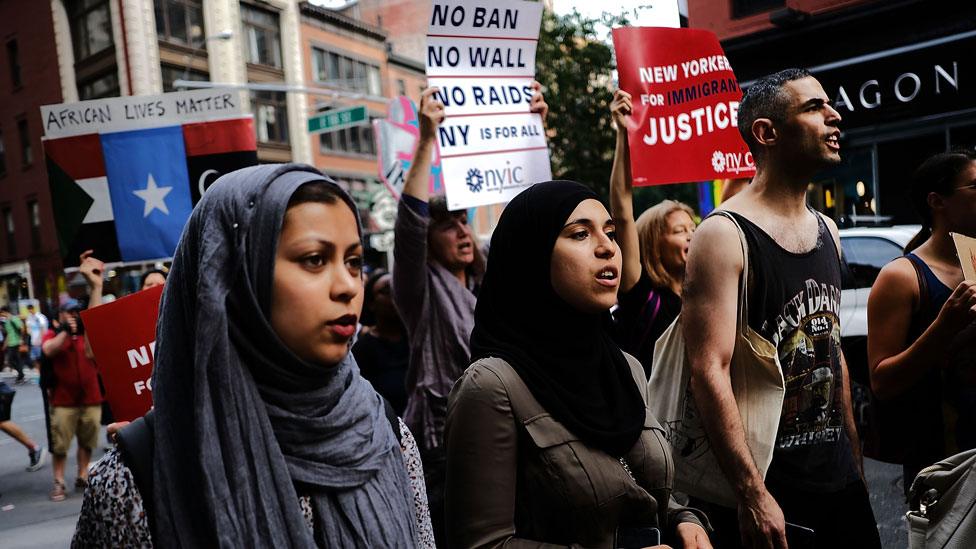
- Published30 June 2017
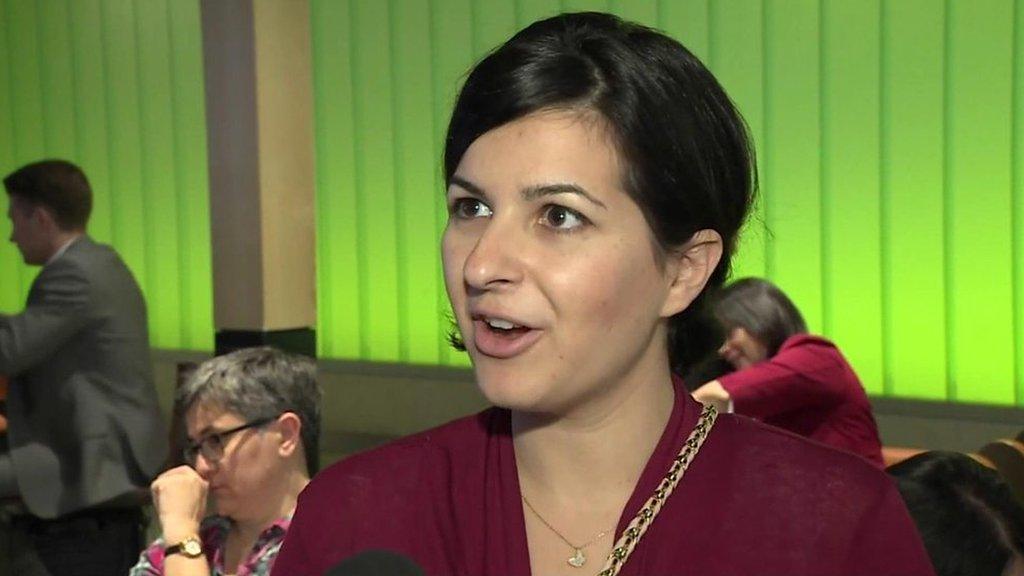
- Published26 June 2018
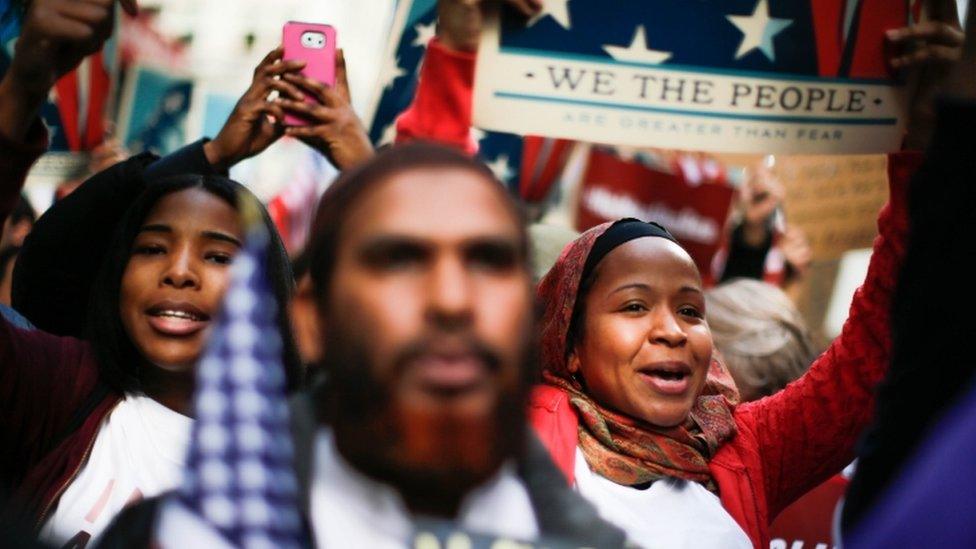
- Published26 June 2017
- Published28 June 2017
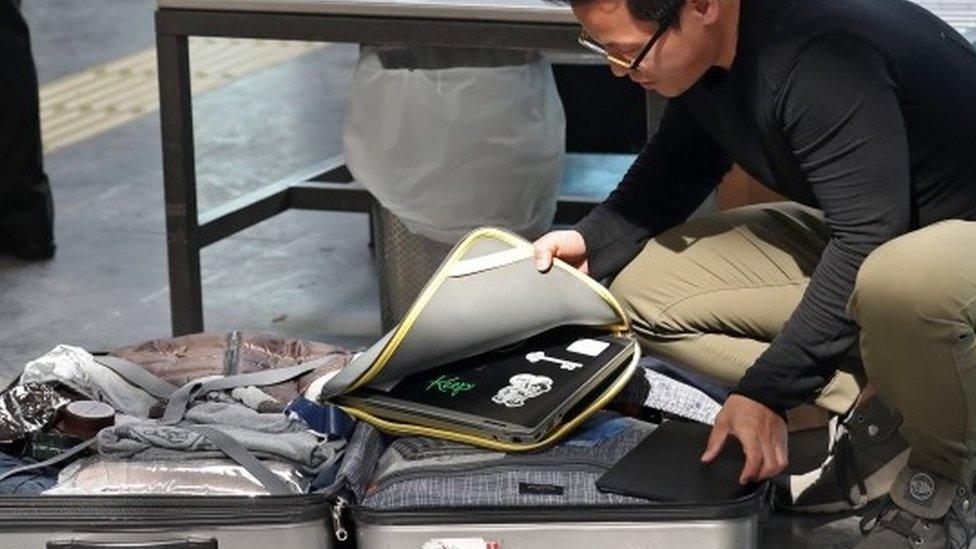
- Published1 February 2017
